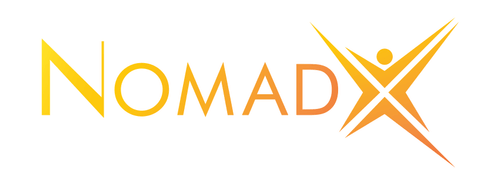Slovenia Is Launching a Digital Nomad Visa — But Will Remote Workers Actually Come?
If you’ve ever dreamed of swapping your cramped city flat for Alpine lakes, bikeable cities and medieval town squares, Slovenia is now dangling a shiny new carrot: its first ever digital nomad visa.
But in a world where nearly every country wants a slice of the remote work pie, the obvious question is: Will a visa alone make Slovenia the next big nomad hotspot?
What’s actually happening?
This week, Slovenia confirmed it’s finally joining the EU’s growing club of digital nomad destinations — but not just yet. The visa launches on 21 November 2025, giving non-EU workers a tidy one-year stay, as first reported by Euronews. It’s a clear attempt to grab a share of the €787bn remote work market that’s turned places like Lisbon, Bansko and Bali into household names for laptop-luggers.
Who’s eligible?
The eligibility list is standard fare:
Non-EU/EEA nationals who earn a stable income from a company or clients registered outside Slovenia.
Proof of remote work capacity — think contracts, payslips or client letters.
Health insurance, valid passport, clean record.
Important footnote: You can’t renew it back-to-back. After one year, you’ll need to spend at least six months abroad before reapplying.
The monthly income requirement is still under wraps, but don’t expect it to be rock bottom — early drafts peg it somewhere around €2,500+, which would put it among the pricier European options.
Applications will run through Slovenian embassies abroad — or in-country if you’re already on a short-stay visa. Processing time? Expect 15–30 days, give or take.
Why Slovenia looks good on paper
Slovenia ticks a lot of the boxes that make digital nomads swoon:
Ljubljana: One of Europe’s greenest, quirkiest capitals, where car traffic is banned from the city centre and riverside cafés double as coworking spaces.
The Julian Alps: A nature-lover’s playground — you can ski, hike and swim in the same weekend.
Piran & the Adriatic coast: A pocket-sized slice of the Mediterranean without Croatia’s peak-season crowds.
Bled & Bohinj: Insta-famous lakes where you can work by day and paddleboard at sunset.
Proximity: Wedged between Italy, Austria and Croatia, Slovenia’s well-connected for weekend Euro-hopping.
Oh, and it’s Schengen, so your new base unlocks hassle-free travel across 26 countries.
But here’s the catch: a visa is not enough to attract digital nomads
If there’s one thing the last five years have taught us, it’s that a digital nomad visa is only half the story.
Estonia and Croatia made headlines with slick visa rollouts — but their real success came from grassroots community building. In Croatia, places like Zadar and Dubrovnik now have dedicated nomad events, coworking spaces, colivings and regular meetups. In Madeira, an entire village pivoted to the nomad economy, becoming Europe’s poster child for remote work communities.
Slovenia? It’s early days. Ljubljana has a small but buzzing expat scene and a few coworking hubs (try The Impact Hub). But outside the capital, the infrastructure is mostly Airbnb and dreams. There’s no anchor festival, no flagship coliving village, no well-known meetup scene — yet.
So… will Slovenia pull it off?
On natural assets alone, Slovenia should be a no-brainer for nomads who’d rather swap the beach for the Alps. But the hard truth is that a visa opens the door — it doesn’t make you feel at home. For remote workers, community is currency: you want connections, events, trusted places to work, and an ecosystem that makes it easy to plug in. No one wants to be the only laptop at the lakeside café.
If local players — from coworkings to mayors — step up to stitch together the infrastructure, Slovenia could genuinely shine as Europe’s next underrated base. Until then, the visa might just gather dust alongside other well-meaning policies that never quite turned into communities.
Takeaway
Visa? Great.
Community? Essential.
Only when the latter shows up will we see nomads flow to Slovenia in real numbers. The scenery is already world-class — now it’s up to Slovenia to decide if it wants to be, too.

